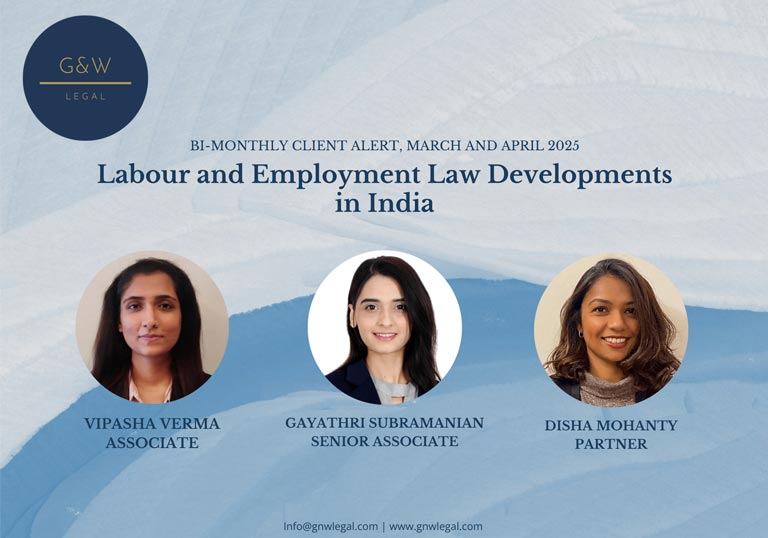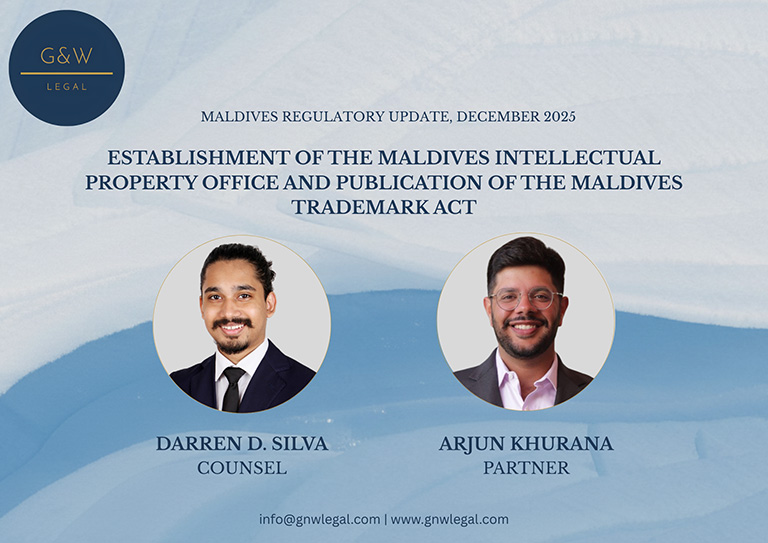
Exclusive Jurisdiction Clauses In Employment Contracts Upheld By Supreme Court: Employees Cannot Shirk From Contractually Agreed Clauses By Claiming To Be Weaker Than Employer
In a recent case, the Supreme Court (“SC”) has held that where the parties have mutually agreed to confer exclusive jurisdiction to competent courts in a certain jurisdiction, and where the employment contract does not offend the provisions of any applicable legislation, courts should not needlessly interfere.
The question arose before the SC’s consideration when two employees sought to file suits in Patna, Bihar and Delhi respectively whereas the employment contract clearly provided that the competent courts in Mumbai, Maharashtra would have exclusive jurisdiction for adjudicating any disputes.
The situation present in India was that while exclusive jurisdiction clauses in general commercial contracts were often enforced on the parties without much ado, in employment contexts, the balance of convenience was often skewed in favour of the employee on the presumption that it is an unequal battle between employer and employee.
The SC considered a catena of judgements on this issue and held that the situation is no longer the same as it used to be before. Employment in private sector is governed by the terms of the employment contract, which pre-supposes the existence of two parties with mutual rights and obligations. Further the SC also acknowledged that private sector employment can be pan-India in nature for providing services to reach people in the last mile, therefore, insisting on the employer to contest suits at far-off places from the registered office may not be possible.
f the employees agreed to the exclusive jurisdiction clause at the time of signing the employment agreement, they cannot be avoiding this provision on a second thought the jurisdiction clause in not beneficial for them at a subsequent stage.
This judgment marks a significant shift in how courts may approach jurisdictional clauses in employment contracts going forward. For employers, it reinforces the enforceability of well drafted exclusive jurisdiction clauses, even in the employment context—provided such clauses do not violate any statutory protections. This also underscores the importance of reviewing employment agreements to ensure jurisdiction clauses are explicit, legally sound, and aligned with business operations across India.
Karnataka High Court Denies Procedural Irregularities as Grounds for Non-Regularisation of LongServing Contractual Employee
In a recent judgment, the Karnataka High Court (“Karnataka HC”) has held that where a daily wage employee has rendered long, continuous service in a sanctioned post performing duties on par with regular employees, denial of regularization on procedural grounds or technicalities constitutes a violation of Articles 14 and 16 of the Constitution of India.
The issue arose when the petitioner (“Employee”), who had been serving as a daily wage Forest Watcher/Driver in the Forest Department (“Employer”) for over 30 years, was denied regularization by the Employer in 2016. Despite rendering uninterrupted service and performing duties equivalent to those of permanent employees, the Karnataka State Administrative Tribunal (“KSAT”) dismissed his application for regularization on multiple grounds including lack of documentary proof of continuous service, delay in approaching for regularization, failure to demonstrate parity with similarly placed regularized employees.
Upon thorough evaluation of the impugned KSAT judgment and the material on record, the Karnataka HC found substantial legal and factual infirmities in the KSAT’s reasoning:
First, the Karnataka HC held that the KSAT had erroneously and rigidly applied the conditions laid down denying regularisation of workers in a specific SC judgment without considering the subsequent clarificatory decision of the SC in another case. The SC had clarified that employees who have rendered more than ten years of continuous service in a sanctioned post should not be denied regularization merely on procedural grounds. As such, the Karnataka HC noted that the material evidence provided by Employee such as salary slips, service certificates, and official correspondences provided by the Employee proving that the employee had provided continuous service to the Employer for over 30 years had been overlooked by the KSAT.
Second, the Karnataka HC found that the petitioner had sufficiently demonstrated the existence of similarly situated employees who had been granted regularization while the current Employee was arbitrarily denied the same. The KSAT’s dismissal of this ground for lack of certified copies was held to be legally untenable. The Karnataka HC emphasized that the burden of producing such records lay with the Employer, who are the custodians of service documents.
Third, the Karnataka HC rejected the KSAT’s reliance on delay as a valid ground for denial of relief. It reiterated the well-settled principle that delay alone, especially where it is attributable to the authorities, cannot defeat the claim for regularization when the employee has continuously served the State.
Accordingly, the Karnataka HC concluded tha the Employee was eligible for regularisation and that the KSAT’s order was unsustainable in law and liable to be set aside.
EPFO Simplifies Online Claim Process: Removes Cheque Upload and Employer Approval for Bank KYC
On 2 May 2025, the Employees’ Provident Fund Organisation (“EPFO”) issued a notification removing the requirement for members to upload an image of a cancelled cheque leaf or attested bank passbook while filing online claims, provided the bank account linked with the Universal Account Number (“UAN”) has been validated by the concerned bank or the National Payments Corporation of India (“NPCI”). The EPFO also announced that employer approval will no longer be required for seeding bank account details with the UAN. All pending bank KYC requests awaiting employer action will now be auto-approved following successful verification by the bank/NPCI. These changes are aimed at expediting claim processing and reducing rejections arising from procedural lapses.
Bombay HC holds Chairman of Establishment cannot Shirk liability for Non-Compliance with Labour Court Order
In a recent ruling, the Bombay High Court (“Bombay HC”) held that senior company officials, including a Chairman, can be held personally accountable for failing to implement a Labour Court’s order. The case involved the Chairman of public limited company (“Employer”), who was named in a criminal complaint after the company failed to comply with a 2019 Labour Court judgment that ordered the reinstatement of an employee with full back wages. Although the company challenged the judgment in appellate forums, no stay was granted. When the company did not act on the order, the employee initiated criminal proceedings under the Maharashtra Recognition of Trade Unions and Prevention of Unfair Labour Practices Act, 1971 (a local labour law). The employer argued that he was not responsible for day-to-day operations and was not a party to the original complaint, thus he cannot be held liable.
The Bombay HC rejected this defence, finding that as Chairman, the employer was in a position of control and supervision and was therefore obligated to ensure compliance with the order. Since no stay had been granted on the Labour Court’s ruling, the Bombay HC upheld the issuance of criminal process against him. Conclusively, the Bombay HC held findings by courts below as just and proper, hence, no interference was deemed to be required.
For employers, this judgment serves as a clear reminder that non-compliance with labour adjudications can lead to personal liability for senior leadership, and such persons cannot prevail in courts by claiming that they are not directly involved in operational matters. Pending appeals are not a substitute for a stay, and ignoring enforceable orders may expose senior management to criminal proceedings as per applicable local labour laws.
Exemptions to IT and ITES sectors for Compliance with Local Labour Laws Extended in Andhra Pradesh
Recently, the Government of Andhra Pradesh has released a notification whereby the exemptions granted to Information Technology (IT) and Information Technology-Enabled Services (ITES) from the application of specific provisions of the Andhra Pradesh Shops and Establishments Act, 1988 (“AP S&E Act”) have been extended for five years with effect from 25 March 2025.
Establishments belonging to this sector are exempted from prescribed conditions such as opening and closing hours, employment of young persons and female employees for night shifts etc, subject to compliance with prescribed conditions.
Salient conditions prescribed in the notification are – a) Regular working hours for a week is 48 hours and overtime is payable for additional hours; b) A weekly off must be given to every employee; c) Female employees can work in night shifts provided adequate security and transport facilities are established by the employer and d) provision of compensatory holiday for employees who work on notified holidays. Some of the other conditions relate to provision of identity cards to employees, background verification of drivers, exemption from maintenance of records in hard copies, specific conditions for maintaining security in premises like CCTVs, control room and GPS based vehicle monitoring.
Supreme Court Clarifies Master-Servant Relationship Must Exist on Paper for Claiming Employment Status
The SC has recently ruled in favour of an organisation (“Organisation”) that had appealed against the remand orders passed by the Allahabad High Court (“Allahabad HC”) in a case involving the employment status of certain individuals (“Claimants”) engaged through a contractor. The Claimants argued that they were effectively employees of the Organisation due to its supervisory control and the nature of their duties, while the Organisation contended that the Claimants were employed by the contractor under a labour supply arrangement. Supporting its position, the Organisation produced bills and payment records issued by the contractor, listing the Claimants’ names.
While the labour court initially ruled in favour of the Claimants, the Allahabad HC later set aside that decision and remanded the matter for a fresh adjudication. The Organisation challenged this remand before the SC, arguing that a re examination was unwarranted. Upon review, the SC clarified that the existence of a master-servant relationship cannot be presumed from mere supervisory oversight and that such a relationship must be evidenced by formal documentation such as employment contracts, which was absent in this case. The only factor supporting the Claimants was their task reassignment by the Organisation, which the SC deemed insufficient. Consequently, the SC allowed the Organisation’s appeal, quashed the Allahabad HC’s remand order, and dismissed the awards passed by the labour court.
This decision highlights the necessity of formal, documented proof to establish an employment relationship and confirms that being supervised by an organization does not, on its own, equate to being its employee. The ruling reinforces the legal distinction between contractor-supplied labour and directly engaged employees, particularly in disputes concerning employment status.
Calcutta HC holds Inference Can be Drawn in Favour of Employe if Employer Withholds the Best Evidence
In a recent case, it was held that a favourable inference can be drawn for the employee if the employer fails to produce the best evidence that it was bound to have maintained as per labour legislations.
The matter revolved around a claim for gratuity filed by a temporary/substitute worker (“Employee”) who had rendered service for 37 years with his organisation (“Employer”). The Employer refuted the gratuity claim by stating that the Employee was only a substitute for permanent employees when they were unavailable and that such Employee had not completed the prescribed continuous service of 240 days every year under the Payment of Gratuity Act, 1972. The Employer had not contested the joining date, retirement date or the amount of last drawn salary as submitted by the employee – instead, the main challenge was on the satisfaction of the continuous service requirement.
The concerned authority awarded the Employee the benefit of gratuity for a total period of 37 years on the grounds that the Employer failed to produce evidence that the Employee did not meet the prescribed continuous service. The order was thereafter challenged before appellate authority which upheld it, until eventually the matter was challenged before the Calcutta High Court (“Calcutta HC”).
After considering the material and averments made, the Calcutta HC observed that the Employee had filed sufficient documentation in terms of what he could provide, however, the Employer did not produce evidence to establish how the Employee did not qualify for gratuity even though it is the Employer’s duty to maintain such documents in compliance with local labour laws. These documents include muster rolls of employees who present themselves for work.
Relying on SC judgements which have ruled against an employer in similar instances, the Calcutta HC observed that the Employer was bound to produce documents to substantiate his claims and these documents should have been maintained under local labour laws. The HC also stated that gratuity is a beneficial legislation and since the employer failed to produce the best evidence that he should have maintained as per law, favourable view can be taken for the employee.
Allahabad HC holds Termination of Employee on Probation is Neither Dismissal Nor Removal Unless Due to Poor Character or Integrity of Employee
In a recent case, the Allahabad High Court (“Allahabad HC”) held that termination of an employee on probation is neither dismissal nor removal, however, if the order of termination is pursuant to a disciplinary inquiry wherein the employee is held guilty, it would be an order by way of punishment irrespective of permanency of employee status.
Rajasthan HC Reaffirms that Sundays and Paid Holidays are Taken into Account for Computation of an Employee’s Continuous Service
In a recent case, the Rajasthan High Court (“Rajasthan HC”) reaffirmed that for the purposes of computing continuous service of a workman, Sundays and paid holidays must be taken into account.
The facts are that the statement of claim filed by the workman (“Employee”) had been rejected by the Industrial Tribunal on a technical count that employee has failed to prove that he worked for more than 240 days in the preceding calendar year.
The Rajasthan HC held that the Industrial Tribunal, while passing the order, lost sight of provisions contained under the Industrial Disputes Act, 1947. It also placed reliance on an SC judgment with a similar factual matrix which stated that Sundays and paid holidays are included within the computation of continuous service of a workman. Thus, Rajasthan HC held the finding recorded by the Industrial Tribunal as not sustainable in the eye of the law and liable to be set aside.
Karnataka High Court Rules Leave Encashment Cannot Be Denied Without Statutory Authority as it is a Constitutional Right
The Karnataka High Court (“Karnataka HC”) has recently allowed a writ petition filed by an ex assistant manager (“Employee”) of a public sector bank (“Employer”) demanding payment of leave encashment as a matter of right.
In this case, the Employee was dismissed from service after the Employer initiated disciplinary proceedings. As per the enquiry, the Employee was held guilty of misconduct and thus, his employment was terminated. The Employee registered a claim for payment of leave encashment of privilege leave which he had accrued in the course of his service. The claim was rejected by the order of the Employer. Thus, the present petition was filed by the Employee.
The Karnataka HC held that privilege leave that is available to the employee is akin to constitutional right to property as protected under Article 300A of the Constitution of India, and therefore, it cannot be taken away unless the statute permits.
It reaffirmed that if an employee has earned the privilege leave and has chosen to accumulate such leaves to his credit, then it becomes a right. Further, such right could not be deprived of without the authority of law, i.e., a specific statutory provision disallowing it. It is important to note that the regulations governing the Employer did not allow for leave encashment to be denied on grounds of dismissal due to misconduct. Interestingly, even the local regulations applicable to private employment do not specifically provide that leave encashment amount can be forfeited by employer if termination is due to misconduct. Thus, the Karnataka HC directed the Employer to pay the Employee the leave encashment.
This judgment reinforces the crucial principle that earned terminal benefits, including leave encashment, cannot be arbitrarily withheld by an employer, even in the case of employee dismissal due to misconduct.
Karnataka HC Ruling Upholds Employer’s Rights in Indemnity Bonds
In a recent judgment, the Karnataka High Court (“Karnataka HC”) ruled in favour of a bank (“Employer”) in an appeal filed against a former probationary manager (“Employee”), holding the Employee accountable to the terms of the employment contract he had voluntarily entered into. The Employee had joined the bank in November 2011 under a selection letter that required a minimum three-year service period and mandated the execution of an indemnity bond, payable if the Employee resigned prematurely. After five months, the Employee resigned for another job opportunity and paid the bond amount upon the Employer’s refusal to waive it, receiving a relieving letter in return.
The Employee later claimed that the indemnity bond was unconscionable and executed under coercion, arguing it amounted to a restraint of trade and was thus invalid. In response, the Employer denied the allegations and relied on established legal principles, asserting that the Employee had accepted the terms voluntarily and even fulfilled the payment obligation, thereby waiving his right to contest the contract later. The Employer cited a SC decision reinforcing that a party who has knowingly accepted contractual benefits cannot later challenge its validity. The Karnataka HC found no evidence of coercion and observed that the Employee had consciously accepted and acted on the contractual terms, making it impermissible for him to backtrack.
Ultimately, the Karnataka HC held that the bond amount was a reasonable pre-estimate of the damages suffered due to the Employee’s abrupt departure and allowed the Employer to retain it. This ruling underscores the importance of clearly defined and legally sound contractual terms in employment arrangements.
For employers, it confirms that indemnity clauses or similar mechanisms like joining bonuses contingent on minimum service periods are enforceable, provided they are reasonable, transparent, and free from coercion. It also reaffirms that vague or unsupported claims of coercion cannot override willingly accepted contractual obligations.
- Rakesh Kumar Verma v. HDFC Bank Ltd., Supreme Court of India (2025 INSC 473).
- Sri. P. Junjappa v. The Principal Chief Conservator of Forests, Karnataka High Court (2025:KHC:10889-DB).
- Arun v. The State of Maharashtra, Bombay High Court (2025:BHC-AUG:9103).
- The Joint Secretary, Central Board Of Secondary Education v. Raj Kumar Mishra, Allahabad High Court (Special Leave Petition (Civil) No. 19648 Of 2023).
- Hooghly Infrastructure Pvt. Ltd. v. Sk. Alam Ismail & Ors, Calcutta High Court (WPA 28770 of 2024).
- Sanjay Kumar Sengar v. State of U.P, Allahabad High Court (2025:AHC:29188).
- Lal Chand Jindal v. Regional Manager, Bank of Baroda, Rajasthan High Court (S.B. Civil Writ Petition No. 1334/2015).
- G. Linganagouda v. General Manager, Karnataka Gramin Bank, Karnataka High Court (NC: 2025:KHCD:3366).
- Vijaya Bank v Abhimanyu Kumar WA 138/2024, Karnataka High Court (KAHC010051872024).
Disclaimer: This update is for general information purposes only. It does not purport to provide comprehensive legal or other advice. The publisher and the contributors accept no responsibility for losses that may arise from reliance upon information contained in these publications.















